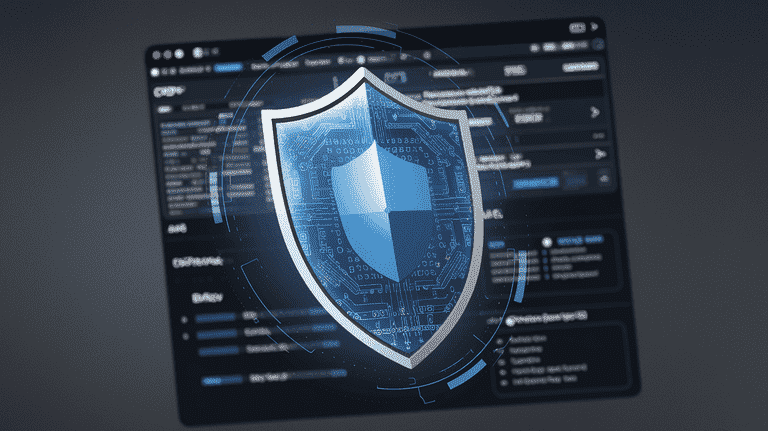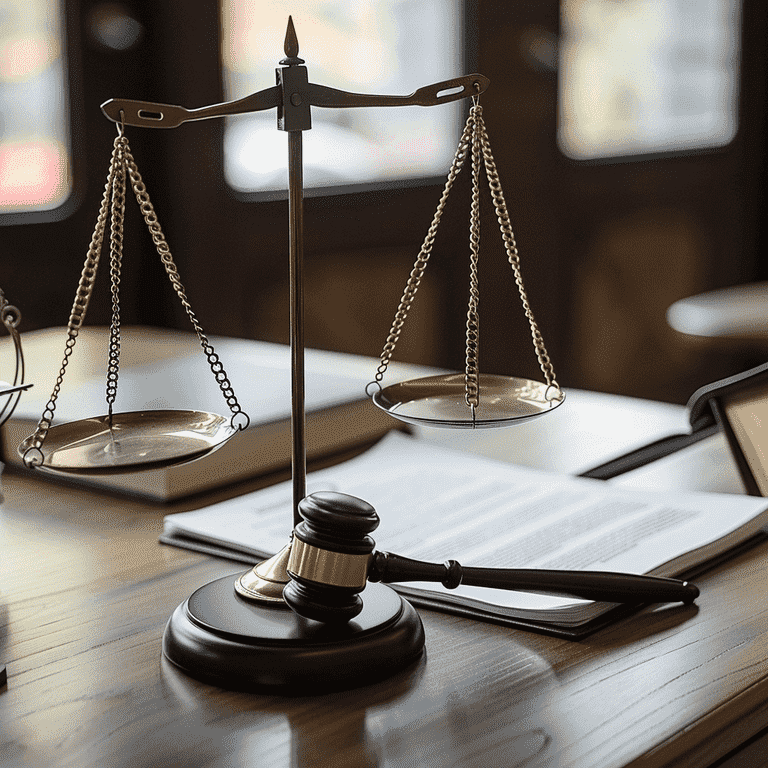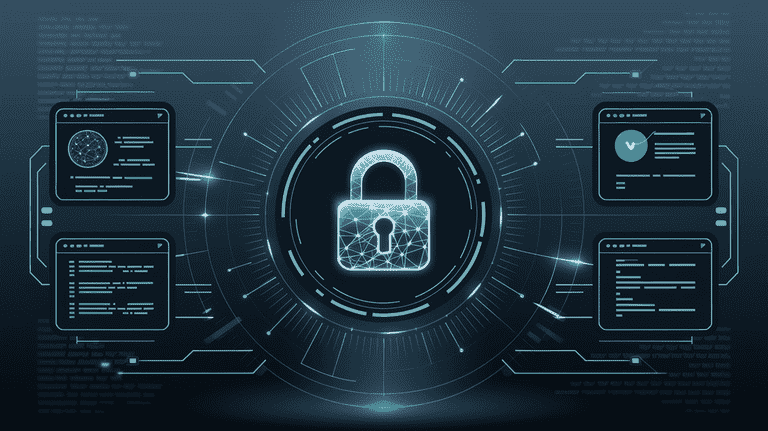Revenge porn, the act of sharing intimate images without consent, is a growing issue in our digital age. It’s not just about embarrassment—it’s about violating someone’s privacy in the worst way. In Nevada, laws have been put in place to address this disturbing trend and provide protections for victims. Understanding these laws is crucial for victims and anyone navigating the complexities of online interactions.
This article delves into the specifics of Nevada’s revenge porn laws, explains what constitutes revenge porn, and offers guidance on what to do if you find yourself affected. Whether seeking justice, support, or simply knowledge, this guide aims to illuminate the legal landscape surrounding this serious issue.
What is Revenge Porn?
Definition and Motivations
Revenge porn involves the sharing of intimate photos or videos of someone without their consent, typically as an act of revenge, spite, or coercion. These images are often taken in private settings, with an understanding that they will remain confidential.
Common motivations for revenge porn include:
- Retaliation: The perpetrator often seeks to hurt the victim following a breakup or conflict.
- Coercion or Control: Threatening to release images as a form of blackmail or manipulation.
- Entertainment or Humiliation: Sharing for personal amusement or publicly shaming the victim.
Impacts on Victims
The impact on victims is profound, often leading to emotional distress, anxiety, and a loss of trust. Social and professional repercussions can follow, making daily life challenging. Victims might feel violated, betrayed, and powerless.
Emotional and Social Consequences:
- Emotional Distress: Feelings of shame, anxiety, and depression are common.
- Social Stigma: Victims may face judgment or ostracization from peers.
- Professional Impact: Career and job opportunities can be affected if images are widely circulated.
Understanding Nevada’s Revenge Porn Laws
Overview of Nevada’s Statutes
Nevada law explicitly criminalizes the distribution of intimate images without consent. The state recognizes that these actions can cause significant harm, and legal measures are in place to deter and punish offenders.
Key Legal Definitions in Nevada:
- Intimate Images: Photos or videos depicting nudity or sexual activity intended to remain private.
- Consent: Permission given by the individual depicted in the images for sharing or distribution.
- Intent to Harm: A key element; the perpetrator must have intended to cause distress, embarrassment, or harm.
Penalties for Violating Nevada’s Revenge Porn Laws:
Violations can result in severe legal consequences, including criminal charges and potential imprisonment. The exact penalties depend on the case’s specifics, such as the intent and distribution scope.
Common Penalties Include:
- Fines: Financial penalties that can range significantly based on the severity of the case.
- Jail Time: Offenders may face imprisonment, mainly if there’s a proven intent to harm.
- Restraining Orders: Courts may issue protective orders to prevent further harassment or distribution.

How Nevada Cyber Laws Address Digital Privacy
Intersection with Cyber Laws
Nevada’s revenge porn statutes are part of broader cyber laws designed to protect digital privacy and curb online harassment. The state recognizes that our digital lives are extensions of our personal lives, deserving of the same legal protections.
How These Laws Work Together:
- Digital Privacy Protections: Laws protect individuals from unauthorized access and sharing of personal data, including intimate images.
- Combating Online Harassment: Revenge porn laws intersect with broader statutes aimed at preventing online stalking, harassment, and threats.
Legal Remedies for Victims:
- Filing Complaints: Victims can file complaints with local law enforcement or seek legal action against offenders.
- Seeking Civil Damages: Victims may pursue civil lawsuits for emotional distress and financial harm caused by the non-consensual sharing of their images.
Steps for Victims of Revenge Porn in Nevada
If you’re a victim of revenge porn in Nevada, it’s crucial to know that you’re not alone and that there are steps you can take to protect yourself and seek justice. The process can feel overwhelming, but having a clear action plan can make a significant difference.
Immediate Actions to Protect Yourself
The first steps after discovering that intimate images have been shared without your consent can be critical. Taking quick action helps protect your privacy and gather evidence.
What You Should Do Right Away:
- Secure Your Accounts: Change passwords on social media, email, and cloud storage accounts. Enable two-factor authentication to enhance security.
- Document Everything: Take screenshots of the images, messages, and related online posts. Save URLs and note the dates when the content was shared.
- Contact the Platform: Report the content to the website or social media platform. Most major sites have policies against non-consensual image sharing and can remove the material quickly.
Legal Steps to Consider
Consider your legal options once you’ve taken immediate action to protect yourself. Nevada’s laws provide avenues for both criminal charges and civil remedies.
Legal Actions You Can Take:
- File a Police Report: Report the incident to local law enforcement. Provide any evidence you have collected to support your case.
- Seek a Restraining Order: If the perpetrator is someone you know, such as an ex-partner, a restraining order can legally prevent them from further contact or distribution of images.
- Consult with an Attorney: A lawyer experienced in cyber laws and revenge porn cases can guide you through the legal process, helping to press charges or file a civil suit.

Legal Defenses and Penalties
Understanding the potential legal defenses and penalties related to revenge porn in Nevada is vital for both victims and those accused. The law doesn’t just consider the act of sharing images but also the intent behind it.
Potential Legal Defenses
For those accused of distributing intimate images, Nevada law provides certain defenses. Not every case of image sharing meets the legal criteria for revenge porn, wildly if consent or intent is disputed.
Common Defenses Include:
- Lack of Intent to Harm: The law requires that the distribution was meant to harm or harass. If intent cannot be proven, charges might not hold.
- Consent Was Given: If the accused can demonstrate that the victim consented to sharing the images, it could serve as a defense.
- Unintentional Distribution: Accidental sharing without intent to cause distress may reduce the severity of charges or penalties.
Penalties for Perpetrators
Nevada takes revenge porn seriously, and the consequences for violators can be steep. The penalties vary depending on the distribution’s extent and the proven intent to harm.

Prevention and Digital Privacy Protection
Prevention is vital when it comes to revenge porn. While the legal system can help address the harm, protecting yourself from becoming a victim is always the best strategy.
Tips for Safeguarding Personal Images and Data
Even the most cautious individuals can find themselves at risk. By taking proactive steps, you can reduce the chances of your intimate images being misused.
How to Protect Your Digital Privacy:
- Think Before You Share: Be mindful of who you trust with intimate images. Even close relationships can change, leading to potential misuse.
- Use Privacy Settings: Ensure your social media and file-sharing settings are secure and limit who can see your posts and content.
- Avoid Cloud Storage for Intimate Photos: Consider keeping sensitive images off cloud services where they might be more vulnerable to hacking.
The Role of Education and Awareness
Raising awareness about the risks of revenge porn is crucial. Educating yourself and others can help prevent these violations before they happen.
Educational Measures Include:
- School Programs: Teaching young people about digital privacy and consent can reduce future incidents.
- Community Outreach: Local organizations often offer workshops and resources on protecting digital privacy.
- Online Resources: Many websites guide you on protecting your data and responding if your privacy is compromised.
Prevention and awareness are powerful tools in the fight against revenge porn. By staying informed and cautious, you can help protect yourself and others from the devastating impacts of this crime.

Breaking It All Down
Revenge porn is more than just a violation of privacy; it’s a deeply personal attack that can have lasting emotional, social, and legal consequences. Nevada’s laws are designed to protect victims and hold offenders accountable. Understanding these laws is essential, whether seeking justice or simply looking to protect yourself from becoming a victim.
If you or someone you know is affected by revenge porn, don’t hesitate to seek help. Legal support, community resources, and understanding your rights are vital to reclaiming your privacy and peace of mind. The more we educate ourselves and others about digital privacy and Nevada’s laws, the more protected we can be.

Frequently Asked Questions
What Should I Do if I Discover Intimate Images of Me Have Been Shared Online?
First, take immediate steps to secure your accounts and document the incident. Report the content to the platform where it was shared and consider reaching out to law enforcement. Consulting a lawyer experienced in Nevada’s revenge porn laws can also guide your next steps.
Can I Get the Images Removed from the Internet?
Yes, many social media platforms and websites have policies against non-consensual intimate images. You can report the photos directly to the site administrators for removal. Although it may not be possible to erase all traces, quick action can significantly limit exposure.
How Can I Prove That I Did Not Consent to Sharing My Images?
Gather any evidence showing the images’ private nature, such as messages indicating that they were meant to be kept private. Your attorney can also help collect and present evidence that supports your lack of consent.
Is Revenge Porn Considered a Felony or a Misdemeanor in Nevada?
The classification depends on the case specifics, including the severity and intent. Revenge porn can be charged as either a misdemeanor or a felony, with harsher penalties for more severe violations, including significant fines and jail time.
What Are My Rights if I'm Wrongly Accused of Sharing Intimate Images?
If you’ve been wrongly accused, seeking legal representation immediately is essential. You have the right to defend yourself, and legal defenses may include lack of intent to harm, consent from the victim, or accidental sharing without malice.
Can Employers Find Out if Someone Has Shared Intimate Images of Me?
While employers generally don’t have direct access to your matters, the public nature of online images means there’s always a risk of unintended exposure. Taking swift legal and technical action can help prevent wider distribution and protect your reputation.
Are There Any Counseling or Support Groups for Victims of Revenge Porn?
Yes, many organizations offer counseling and support for victims of digital abuse, including revenge porn. These groups provide emotional support, legal advice, and guidance on navigating the aftermath of such incidents.
How Do I Talk to My Children About Digital Privacy to Prevent Revenge Porn?
Open conversations about the risks of sharing intimate content and the importance of consent are essential. Teach your children about privacy settings, the permanence of digital content, and the potential consequences of sharing intimate images, even with trusted individuals.
Is It Illegal to Threaten to Share Intimate Images, Even If I Don't Do It?
Yes, threatening to share intimate images without consent can be considered harassment or blackmail, which are illegal under Nevada law. Even the threat of sharing such content can carry serious legal consequences.
Can I Sue for Emotional Damages if My Intimate Images Are Shared?
Yes, victims of revenge porn can pursue civil lawsuits for emotional distress, loss of reputation, and other damages. A successful lawsuit can result in financial compensation from the offender.
What Resources Are Available in Nevada to Help Victims?
Multiple resources are available, including local victim advocacy groups, legal aid services, and state-run hotlines. Many organizations offer free or low-cost services to help victims navigate the legal process and find emotional support.

Additional Resources for You from The Rosenblum Allen Law Firm.
In addition to helping with appeals, our lead attorney, Molly Rosenblum Allen, Esq., has created various resources to support you in other legal matters:
Criminal Defense Attorneys: Effective defense for a wide range of criminal charges to protect your rights and future.
Las Vegas DUI Lawyer: Specialized guidance and defense strategies for those facing DUI charges in Las Vegas.
Domestic Violence Lawyer Las Vegas: Compassionate and experienced legal support for domestic violence cases, focusing on protecting your rights.
Drug Possession Lawyer: Aggressive defense for drug possession charges to minimize the impact on your life.
Sex Crimes Attorney: Dedicated representation for sensitive and serious sex crime allegations.
CPS Defense Attorney: Defense against Child Protective Services actions, protecting your family and parental rights.
Misdemeanor Lawyer: Guidance through the legal process for misdemeanors, aiming for the best possible outcomes.
Las Vegas Warrant Defense Attorney: Help with clearing warrants and addressing related legal issues promptly and efficiently.
Las Vegas Probation Violation Attorney: Skilled defense for probation violations to help you avoid harsh penalties.
Theft Crime Defense Lawyer: Representation for theft charges, focusing on reducing charges or dismissing your case.
Kidnapping Lawyers: Effective legal defense for kidnapping charges, prioritizing your rights and freedom.
Juvenile Defense Lawyers: Protecting the rights of minors facing legal challenges, aiming for solutions that support their future.
Firearms Lawyer Las Vegas: Defense for firearm-related charges, ensuring your second amendment rights are upheld.
These resources are designed to provide you with the knowledge and support needed to navigate these challenging legal issues.

Offsite Resources for You
American Bar Association (ABA): https://www.americanbar.org/
The ABA provides extensive resources and information on the legal process, including articles and guides on appeals and other legal topics.
National Association of Criminal Defense Lawyers (NACDL): https://www.nacdl.org/
NACDL offers resources and advocacy for criminal defense attorneys and individuals facing criminal charges, including insights on appeals.
Nevada Judiciary: https://nvcourts.gov/
The official website of the Nevada Judiciary provides direct access to court information, forms, and procedures for appeals and other legal processes.
FindLaw: https://www.findlaw.com/
FindLaw offers a comprehensive collection of legal articles, case law, and guides on various legal topics, including the appeals process.
Justia: https://www.justia.com/
Justia provides free access to a wide range of legal information, including resources related to appeals and Nevada-specific legal issues.
Martindale-Hubbell: https://www.martindale.com/
Martindale-Hubbell offers lawyer directories and legal articles, helping individuals connect with qualified attorneys and learn more about the appeals process.
National Center for State Courts (NCSC): https://www.ncsc.org/
NCSC provides information on court systems, including appeals processes, court administration, and resources for those involved in legal proceedings.

A Special Message from Our Lead Attorney, Molly Rosenblum Allen, Esq

Thank you for taking the time to read through our resources. Navigating legal challenges, especially when you’re far from home, can be overwhelming, but you don’t have to go through it alone. If you need help with your situation or have any questions, please don’t hesitate to reach out. Give me and my team a call at (702) 433-2889, and let’s get the ball rolling. We’re here to support you every step of the way.
Looking forward to speaking with you soon!






